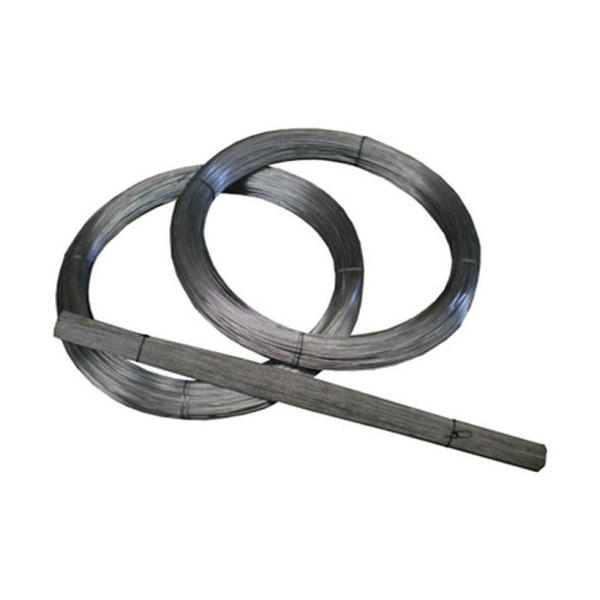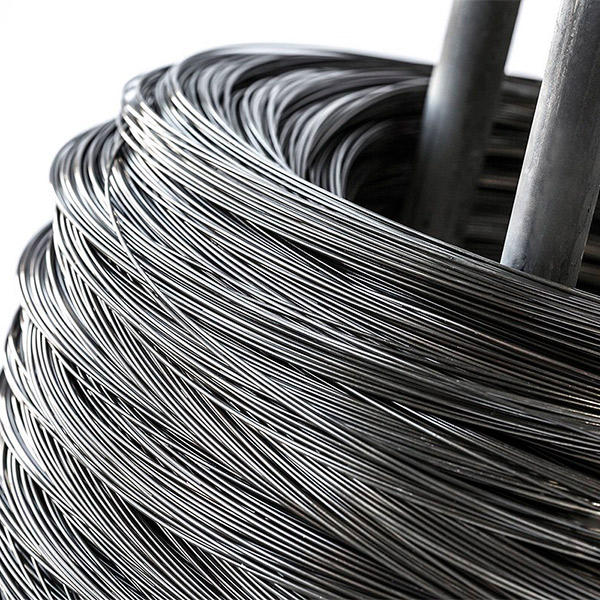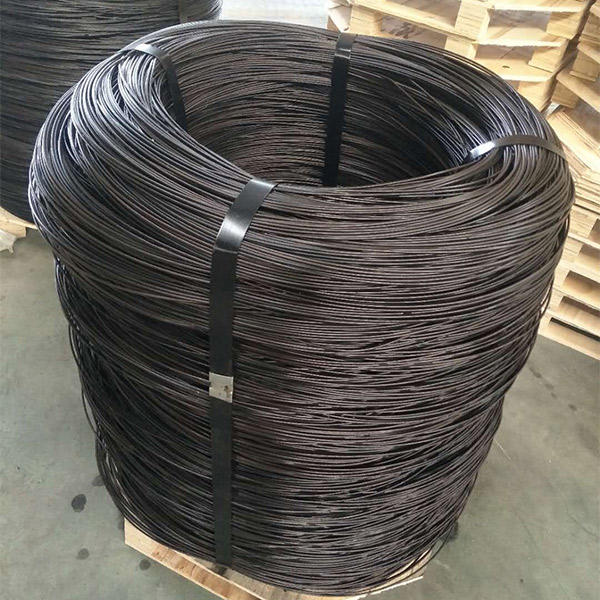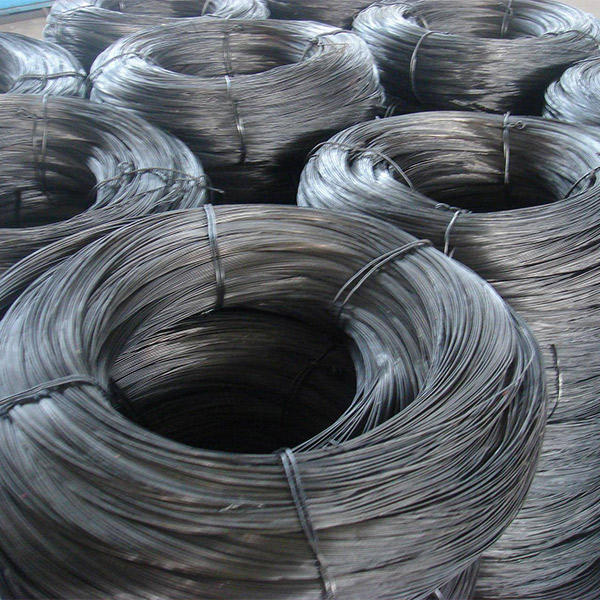Abu . 14, 2025 01:00 Back to list
Welded Wire Mesh for Industry Factory - Durable & Custom Solutions
The Indispensable Role of Welded Wire Mesh in Modern Industry
In the rapidly evolving landscape of industrial infrastructure and manufacturing, the demand for robust, versatile, and cost-effective materials is paramount. Welded wire mesh for industry factory applications has emerged as a cornerstone solution, critical for everything from structural reinforcement to sophisticated filtration systems. Its unique combination of strength, rigidity, and customizable apertures makes it an ideal choice for diverse sectors, driving efficiency and durability in an era where material performance directly impacts operational success. This comprehensive guide explores the multifaceted aspects of industrial welded wire mesh, detailing its manufacturing, technical specifications, varied applications, and the competitive advantages offered by leading manufacturers.
The global market for industrial wire mesh is experiencing steady growth, projected to reach over USD 12 billion by 2027, driven by expansion in construction, automotive, and agricultural industries. This growth underscores the increasing reliance on materials that offer high tensile strength, excellent corrosion resistance, and adaptability to specific project requirements. For industries requiring precise structural integrity and long-term reliability, understanding the intricacies of welded wire mesh and selecting the right supplier is crucial. We delve into the critical factors that differentiate high-quality products and reliable welded wire mesh for industry manufacturers.
Manufacturing Excellence: The Welded Wire Mesh Process
The production of high-quality industrial welded wire mesh is a meticulously engineered process, beginning with the selection of premium raw materials. Typically, low-carbon steel wire, galvanized wire, or stainless steel wire are used, chosen based on the desired strength, corrosion resistance, and application environment. For certain applications requiring enhanced ductility and specific aesthetic properties, materials like Black Annealed Wire can be utilized in the foundational wire drawing stage due to its improved malleability after controlled heating and cooling. The core manufacturing stages for a robust welded wire mesh for industry factory product include:
- Wire Drawing & Preparation: High-grade wire rods are drawn through a series of dies to achieve the precise diameter required. This process enhances the wire's tensile strength and uniformity, crucial for structural integrity.
- Straightening & Cutting: The drawn wires are mechanically straightened to remove any curvature and then cut to exact lengths, forming the warp (longitudinal) and weft (transverse) wires.
- Automated Resistance Welding: This is the heart of the process. Longitudinal and transverse wires are fed into a sophisticated welding machine that precisely positions them. Electric resistance welding then fuses the wires at each intersection point. This method ensures incredibly strong, consistent welds, preventing mesh deformation and enhancing load-bearing capacity. State-of-the-art machines can produce mesh panels or rolls with extreme precision and high speed.
- Surface Treatment: Depending on the application, the welded mesh undergoes various surface treatments. Common treatments include hot-dip galvanization for superior corrosion resistance in harsh environments, electro-galvanization for a smoother finish and moderate protection, or PVC coating for enhanced durability and aesthetic appeal, particularly important for specialized applications like security fencing or certain galvanized brick coil wire mesh masonry factory products.
- Quality Control & Inspection: Rigorous quality checks are performed at every stage. Finished products are inspected for weld strength, mesh size accuracy, wire diameter consistency, dimensional tolerances, and surface finish. Adherence to international standards such as ISO 9001 for quality management, ASTM A185/A497 for steel wire specifications, and EN 10244 for galvanized coatings ensures that the product meets stringent performance criteria and possesses a predictable service life, often exceeding 20-30 years for properly galvanized or stainless steel variants in typical industrial environments.

This intricate manufacturing process, optimized by experienced welded wire mesh for industry manufacturers, ensures that the final product not only meets but often exceeds the demanding specifications of industrial applications, providing unparalleled performance in areas requiring high structural integrity, containment, or filtration capabilities.
Technical Parameters and Specifications of Industrial Welded Wire Mesh
Understanding the technical parameters of industrial welded wire mesh is crucial for engineers and procurement specialists to ensure optimal performance and compliance with project specifications. These parameters define the mesh's physical properties, material composition, and suitability for specific environments. Key specifications often include wire diameter, mesh aperture size (spacing), panel or roll dimensions, and surface finish. Reputable welded wire mesh for industry suppliers provide detailed data sheets for their products.

| Parameter | Description | Typical Range / Value |
|---|---|---|
| Material Type | Commonly used wire materials for strength and durability. | Low Carbon Steel (Q195/Q235), Galvanized Steel (Hot-dip/Electro), Stainless Steel (304, 316, 316L) |
| Wire Diameter | Thickness of individual wires forming the mesh. Crucial for load-bearing capacity. | 0.4 mm to 12 mm (0.016" to 0.47") |
| Mesh Aperture | The size of the square or rectangular openings between wires. Determines filtration capacity and screening performance. | 6 mm x 6 mm to 200 mm x 200 mm (0.24"x0.24" to 7.87"x7.87") |
| Tensile Strength | The maximum stress the wire can withstand while being stretched or pulled before breaking. | Typically 450-700 MPa (for carbon steel), higher for stainless steel. |
| Surface Treatment | Protective coating applied to the mesh to enhance corrosion resistance and lifespan. | Electro Galvanized, Hot-Dip Galvanized, PVC Coated, Bright Annealed |
| Panel/Roll Dimensions | Standard and customizable widths and lengths for various applications. | Widths up to 2.5 meters (8.2 ft), Lengths up to 50 meters (164 ft) for rolls; custom panel sizes. |
| Welding Strength | The integrity and strength of the weld points, critical for overall mesh stability. | Adherence to ASTM A185/A497 weld shear strength requirements. |
These detailed specifications allow industrial buyers to match the exact requirements of their projects, from heavy-duty structural applications in a welded wire mesh for industry factory setting to fine filtration systems, ensuring optimum performance and longevity.
Diverse Applications Across Industries
The versatility of welded wire mesh for industry factory applications is truly remarkable, finding critical uses across a spectrum of heavy industries. Its inherent strength and adaptability allow it to serve in roles demanding both structural integrity and precise filtering capabilities.

- Construction & Infrastructure: Reinforcement in concrete slabs, walls, and pre-cast elements, providing tensile strength and crack control. Used extensively in bridge decks, tunnels, and high-rise buildings. Also for gabion baskets, providing erosion control and retaining wall solutions.
- Petrochemical Industry: Used in distillation columns, catalytic converters, and as support grids for catalysts, where high temperature and corrosion resistance are vital. Stainless steel variants excel here, preventing costly downtime and ensuring process efficiency.
- Metallurgy & Mining: Screening and filtration of ores, coal, and minerals. Heavy-duty mesh acts as protective barriers, conveyor belt guards, and vibrator screens, enduring abrasive conditions and heavy loads.
- Water Treatment & Drainage: Filtration of solids from liquids, screens for water intake systems, and drainage grates. The non-corrosive properties of galvanized or stainless steel mesh ensure long-term functionality and purity, often contributing to energy savings by reducing pump load from clogged systems.
- Agriculture & Aquaculture: Enclosures for livestock, fencing, crop protection, and cages for aquaculture, leveraging its durability and protective features against environmental elements.
- Automotive & Manufacturing: Machine guarding, shelving, storage cages, and custom components within manufacturing lines, where safety, organization, and material handling are critical.
- HVAC & Air Filtration: Pre-filters and support frames for more complex filter media, providing mechanical strength and preliminary particulate removal in industrial ventilation systems.
In these diverse applications, the advantages of welded wire mesh are consistently observed: its inherent strength contributes to significant energy savings by reducing the need for more energy-intensive structural components, while its superior corrosion resistance (especially in galvanized or stainless steel forms) ensures extended service life and minimal maintenance, directly impacting operational costs. Furthermore, for masonry applications, specifically engineered galvanized brick coil wire mesh masonry factories utilize products that offer exceptional bonding and crack resistance in brickwork.
Unmatched Technical Advantages of Welded Wire Mesh
The technical superiority of industrial welded wire mesh stems from its design and manufacturing precision. Unlike woven mesh, welded wire mesh features individual wires resistance-welded at each intersection, creating a rigid, stable, and highly durable structure. This fixed grid pattern prevents wire movement or mesh deformation, ensuring consistent aperture size throughout its lifespan. This rigidity is a critical advantage in applications demanding consistent filtration or precise load distribution.

- Superior Strength-to-Weight Ratio: Welded wire mesh offers exceptional tensile and shear strength relative to its weight, making it an efficient choice for structural reinforcement and protective barriers without adding excessive bulk. This efficiency contributes to overall project cost savings and simplified installation.
- Consistent Aperture Size: The precise welding ensures uniform mesh openings, vital for accurate filtration, screening, and consistent reinforcement patterns. This consistency is difficult to achieve with other mesh types over extended use.
- High Dimensional Stability: The rigid structure maintains its shape under stress, preventing distortion or stretching that can compromise functionality. This is particularly important for critical applications such as machine guarding or precise material separation.
- Enhanced Corrosion Resistance: With options like hot-dip galvanization (conforming to ISO 1461 standards) or the inherent properties of stainless steel, industrial welded wire mesh exhibits excellent resistance to rust and degradation even in harsh environments like coastal areas, chemical plants, or wastewater treatment facilities, extending its service life and reducing maintenance costs.
- Ease of Fabrication and Installation: Welded wire mesh panels are easy to cut, bend, and join, allowing for rapid and efficient installation in various configurations. Its modular nature speeds up construction and assembly processes.
- Cost-Effectiveness: While initial material costs might vary, the long service life, minimal maintenance requirements, and ease of installation result in significant long-term cost savings for industrial projects, making it a highly economical choice for a welded wire mesh for industry supplier.
These technical advantages position welded wire mesh as a superior material solution for demanding industrial environments, ensuring reliability, longevity, and operational efficiency across numerous applications, including those critical to the output of welded wire mesh for industry manufacturers and welded wire mesh for industry suppliers.
Choosing Your Partner: Manufacturer Comparison and Selection Criteria
Selecting the right welded wire mesh for industry manufacturer or supplier is paramount for successful project outcomes. The market is populated by numerous entities, but not all offer the same level of quality, service, or adherence to international standards. Discerning buyers should prioritize partners who demonstrate expertise, a track record of experience, verifiable authoritativeness, and unwavering trustworthiness.

Key Comparison Factors:
- Quality Certifications: Look for manufacturers holding ISO 9001:2015 certification for quality management systems, indicating a commitment to consistent quality. Compliance with specific material standards (e.g., ASTM, EN) is also crucial.
- Manufacturing Capabilities: Assess their capacity for large-scale production, precision welding technology, and a diverse range of wire diameters and mesh sizes. Advanced machinery ensures uniform products.
- Material Sourcing & Traceability: A reliable supplier will have transparent material sourcing, ensuring that raw materials (like the wires used in a galvanized brick coil wire mesh masonry factory) meet specified metallurgical properties and are fully traceable.
- Experience & Specialization: Companies with decades of experience in serving industrial sectors often possess invaluable insights into specific application challenges and solutions. Specialization in heavy-duty or fine-mesh applications can be a significant advantage.
- Customer Support & Customization: Evaluate their responsiveness, technical support, and willingness to provide bespoke solutions. A strong client feedback history and dedicated project managers are positive indicators.
- Delivery & Logistics: Inquire about their typical lead times, logistics capabilities for large or international orders, and reliability in meeting deadlines.
- Warranty & After-Sales Service: Understand the warranty terms and the level of after-sales support offered. This reflects the manufacturer's confidence in their product and commitment to long-term client relationships.
By carefully evaluating these aspects, industrial buyers can forge partnerships with welded wire mesh for industry factories that consistently deliver high-performance products, ensuring project integrity and long-term value.
Customization Solutions for Unique Industrial Needs
While standard welded wire mesh for industry factories offers broad utility, many industrial applications demand highly specialized solutions. Recognizing this, leading welded wire mesh for industry suppliers offer extensive customization capabilities. These bespoke solutions ensure that the mesh perfectly integrates with complex systems, optimizing performance and reducing installation complexities.

Customization Options Include:
- Material Selection: Beyond standard carbon steel, options include specific grades of stainless steel (e.g., 304, 316, 316L for enhanced corrosion resistance in marine or chemical environments), galvanized steel, or even specialized alloys for extreme temperature or chemical resistance.
- Wire Diameter & Mesh Opening: Precision control over wire gauge and mesh aperture allows for exact filtration levels, specific load-bearing capacities, or ideal void spaces for reinforcement. This includes very fine mesh for intricate filtration or heavy-gauge mesh for robust structural support.
- Panel/Roll Dimensions: Custom widths and lengths can be manufactured to minimize waste and reduce on-site cutting, leading to more efficient project timelines and reduced labor costs.
- Surface Finishes: Tailored surface treatments beyond standard galvanization, such as specialized powder coatings for specific colors or enhanced UV resistance, or electropolishing for medical/food-grade applications, can be provided.
- Edge Treatments & Fabrication: Manufacturers can provide custom edge finishes (e.g., selvage, trimmed, or barbed) and pre-fabricate mesh into specific shapes, forms, or with integrated features (e.g., cut-outs, bends) ready for immediate installation, saving significant on-site fabrication time.
- Compliance with Niche Standards: For highly regulated industries, customization may include meeting specific certifications beyond general industry standards, such as those for food contact (FDA) or specific national building codes.
The ability to provide highly customized welded wire mesh for industry factories solutions is a hallmark of a truly expert manufacturer. This collaborative approach, where the supplier works closely with the client to define exact requirements, ensures optimal performance, minimizes project risks, and unlocks greater efficiency in complex industrial operations.
Real-World Impact: Application Case Studies
The practical application of welded wire mesh illustrates its profound impact on industrial efficiency and safety. These case studies highlight how tailored solutions from welded wire mesh for industry factories address specific challenges and deliver measurable benefits.

Case Study 1: Coastal Bridge Reinforcement
A major infrastructure project involving a bridge connecting two coastal cities faced significant challenges with saltwater corrosion. Traditional steel reinforcement would require extensive maintenance and have a limited lifespan. A specialized welded wire mesh for industry manufacturer provided custom-fabricated stainless steel (316L) mesh panels for concrete reinforcement. The inherent corrosion resistance of 316L stainless steel, coupled with the rigid structure of welded mesh, ensured long-term structural integrity against chloride attack. This solution reduced anticipated maintenance costs by 40% over a 50-year service life compared to standard carbon steel alternatives.
Case Study 2: Mining Sieve Optimization
A large-scale mining operation required highly durable and precise sieves for separating crushed ore. Frequent replacement of woven wire screens due to wear and deformation led to significant downtime. A leading welded wire mesh for industry supplier engineered heavy-gauge, abrasion-resistant, hot-dip galvanized welded wire mesh with optimized aperture sizes. The superior weld strength and rigidity of the mesh drastically reduced deformation and extended screen life by 2.5 times, leading to a 15% increase in operational uptime and an estimated annual savings of $250,000 in replacement costs and lost production.
Case Study 3: Industrial Machine Guarding
For a robotic assembly line, safety regulations mandated robust, easily inspectable machine guards. A welded wire mesh for industry factory specializing in safety solutions provided custom-sized, PVC-coated welded wire mesh panels. The precise mesh openings allowed for clear visibility of machinery while preventing hand access, and the PVC coating offered enhanced impact resistance and a clean, durable finish. The modular design enabled rapid installation, reducing assembly line commissioning time by 20%, highlighting the efficiency and safety benefits of modern industrial mesh.
Frequently Asked Questions (FAQ)
Q1: What is the typical service life of industrial welded wire mesh?
The service life depends heavily on the material type, surface treatment, and environmental conditions. For instance, hot-dip galvanized welded wire mesh in a standard industrial environment can last 20-50 years, while stainless steel mesh can exceed 70 years, even in highly corrosive settings. Regular inspections and proper installation also contribute to longevity.
Q2: How does welded wire mesh compare to woven wire mesh for industrial use?
Welded wire mesh for industry factories offers superior rigidity and dimensional stability due to its fixed, welded intersections. This makes it ideal for structural applications, machine guarding, and consistent filtration. Woven mesh, while more flexible, can deform under stress and has variable aperture sizes, making it less suitable for applications requiring precise, stable openings.
Q3: Can industrial welded wire mesh be customized for specific applications?
Absolutely. Leading welded wire mesh for industry manufacturers provide extensive customization options, including specific wire diameters, mesh apertures, panel dimensions, material types (e.g., various stainless steel grades), and surface treatments. This ensures the mesh precisely meets the unique demands of each industrial project, from specialized filtration to unique structural reinforcement.
Q4: What quality standards should I look for in a welded wire mesh for industry supplier?
Key certifications include ISO 9001 for quality management. For product specifications, look for compliance with ASTM (e.g., ASTM A185 for concrete reinforcement, ASTM A497 for deformed wire mesh), EN (European Norms), or other relevant national and international standards that govern material composition, wire tensile strength, weld shear strength, and coating thickness (e.g., ISO 1461 for hot-dip galvanization).
Delivery & Assurance: Our Commitment
A crucial aspect of selecting a reliable welded wire mesh for industry supplier is their commitment to timely delivery and comprehensive product assurance. We understand that industrial projects operate on strict timelines, and material delays can lead to significant cost overruns and operational disruptions. Our streamlined production processes and robust logistics network ensure efficient order fulfillment and reliable on-time delivery, regardless of project scale or destination.
Delivery Cycle & Logistics:
- Lead Time: Standard products typically ship within 7-14 business days, while custom orders may require 3-4 weeks depending on complexity and volume. Expedited options are available upon request.
- Global Reach: We partner with international freight forwarders and logistics companies to ensure seamless delivery to industrial facilities worldwide, handling all necessary documentation and customs procedures.
- Packaging: All mesh products are securely packaged to prevent damage during transit, utilizing robust pallets, waterproof wrapping, and protective banding tailored for heavy-duty industrial transport.
Quality Assurance & Support:
- Comprehensive Warranty: All our welded wire mesh for industry factory products are backed by a robust warranty, covering manufacturing defects and material integrity, ensuring peace of mind for our clients. Specific warranty periods vary by product type and application, typically ranging from 5 to 10 years for structural integrity.
- Dedicated Customer Support: Our team of technical experts and sales professionals is available to provide comprehensive pre-sales consultation, post-delivery support, and troubleshooting. We offer guidance on product selection, installation best practices, and maintenance to maximize the lifespan of your investment.
- After-Sales Service: We provide ongoing support for any operational queries or unforeseen challenges, demonstrating our long-term commitment to our client's success and ensuring continued optimal performance of our products in demanding industrial environments.
Our unwavering commitment to quality, timely delivery, and exceptional customer support solidifies our position as a trusted partner for industrial welded wire mesh for industry factories globally.
References
- International Organization for Standardization (ISO). (n.d.). ISO 9001: Quality Management.
- ASTM International. (n.d.). ASTM A185/A185M - 07(2018) Standard Specification for Steel Welded Wire Reinforcement, Plain, for Concrete.
- ASTM International. (n.d.). ASTM A497/A497M - 07(2018) Standard Specification for Steel Welded Wire Reinforcement, Deformed, for Concrete.
- European Committee for Standardization (CEN). (n.d.). EN 10244: Steel wire and wire products — Non-ferrous metallic coatings on steel wire.
- Grand View Research. (2020). Wire Mesh Market Size, Share & Trends Analysis Report.
- Journal of Materials Science. (Various Issues). Articles on corrosion resistance and mechanical properties of steel alloys.
-
Chain Link Fence-Durable Versatile Reliable|Anping County Puersen Hardware Wire Mesh Products Co., Ltd.
NewsAug.14,2025
-
Chain Link Fence-Anping County Puersen Hardware Wire Mesh Products Co., Ltd.|Durable Security Solution&Versatile Fencing Applications
NewsAug.14,2025
-
Welded Wire Mesh for Industry Factory - Durable & Custom Solutions
NewsAug.14,2025
-
Chain Link Fence-Durability&Versatility|Anping County Puersen
NewsAug.13,2025
-
Chain Link Fence - Anping County Puersen Hardware Wire Mesh Products Co., Ltd | Durable, Versatile, Reliable
NewsAug.13,2025
-
Chain Link Fence-Galvanized Steel|Durability,Versatility
NewsAug.13,2025

